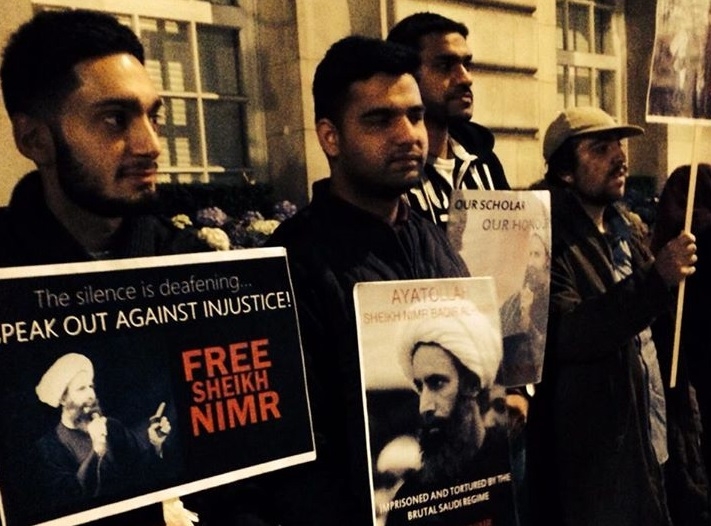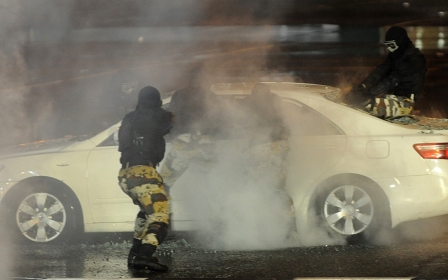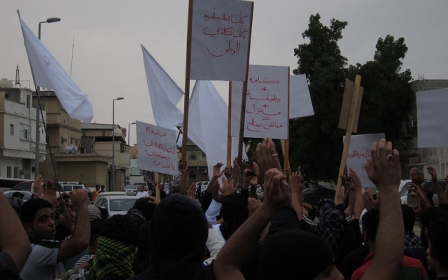Saudi Shiite cleric sentenced to death for 'sedition'

A Saudi court on Wednesday sentenced prominent Shiite cleric Nimr al-Nimr to death after convicting the anti-government protest leader of "sedition" and seeking "foreign meddling" in the country, his brother and lawyer said.
The verdict risks a further escalation of tensions with Saudi Arabia's minority Shiite community.
Nimr, a driving force behind 2011 protests against Saudi Arabia's authorities in the Eastern Province, was also convicted of seeking "foreign meddling" in the country, a reference to Iran, his brother Mohammed al-Nimr wrote on Twitter.
The court also found Nimr guilty of "disobeying" the kingdom's rulers and taking up arms against security forces, his brother said.
The Saudi authorities, for their part, have yet to comment on the ruling.
Nimr, who is in his 50s, had been on trial since March 2013.
Most of Saudi Arabia's estimated two million Shiites live in the east, where the vast majority of the wealthy kingdom's oil reserves lie, and many complain of marginalisation.
They began demonstrating in February 2011 after an outbreak of violence between Shiite pilgrims and religious police in the Muslim holy city of Medina in western Saudi Arabia.
Protests escalated after the kingdom's intervention in neighbouring Bahrain to support that Shiite-majority country's monarchy.
Tension increased in July 2012 when security forces wounded and arrested Nimr.
Clashes have now killed about 24 people, including at least four policemen.
In June this year, a court sentenced two people to death for "taking part in forming a terrorist group" and other crimes linked to the protests by Shiites.
Several others have received multi-year jail sentences.
Speaking in November 2011, after four Shiites were shot dead in Eastern Province, Nimr had demanded the "release of all those detained in the protests, and all prisoners of conscience -- Sunnis and Shiites."
In a speech at the funeral of one of the protesters, Nimr said: "We are determined to demand our legitimate rights by peaceful means."
In August 2012 seven Shiite dignitaries from the community of Qatif in Eastern Province hailed a call by King Abdullah for the creation of a centre for Sunni-Shiite interfaith dialogue.
But tension has continued to simmer.
Police said on September 30 that one of their officers was wounded when gunmen opened fire on a checkpoint in the Shiite village of Awamiya.
Two days earlier a suspect was shot and killed during a firefight with police in the same village.
The London-based Islamic Human Rights Commission condemned the court ruling, saying it was politically motivated.
"The sheikh's arrest came against the backdrop of rising public unrest and dissension in Saudi Arabia as the Arab Spring took hold across the Middle East," said IHRC in a statement.
IHRC chair Massoud Shadjareh said: "It is outrageous that a religious personality of the stature of Sheikh al-Nimr can be sentenced to death for nothing other than standing up for justice and the human rights of all Saudi citizens."
Middle East Eye propose une couverture et une analyse indépendantes et incomparables du Moyen-Orient, de l’Afrique du Nord et d’autres régions du monde. Pour en savoir plus sur la reprise de ce contenu et les frais qui s’appliquent, veuillez remplir ce formulaire [en anglais]. Pour en savoir plus sur MEE, cliquez ici [en anglais].




